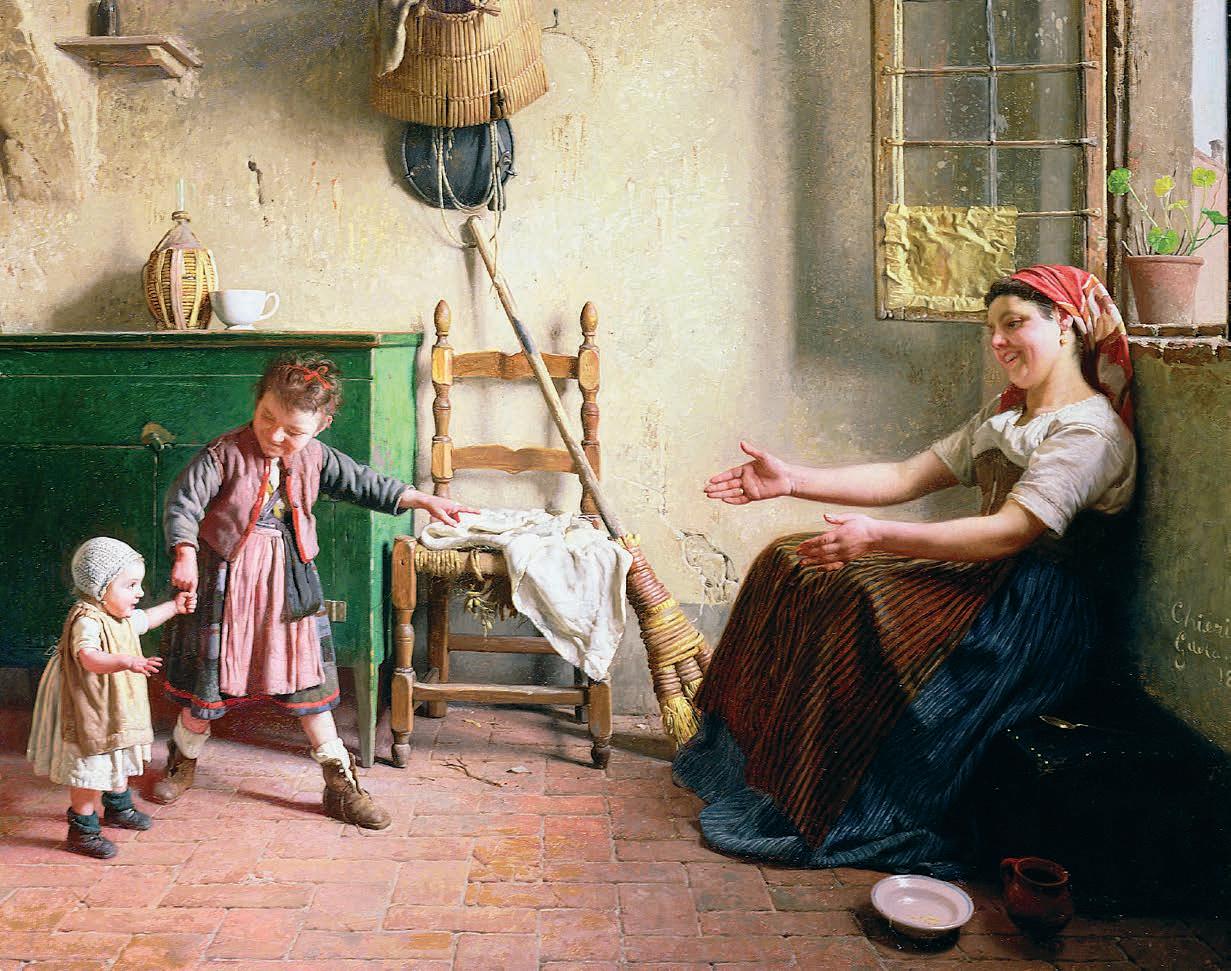
3 minute read
Motherhood: A Marvelous Contradiction
BY FR. RAOUL PLUS, S.J.
The writer who said, “Man conquers and woman gives herself,” was correct.
This phrase sums up the difference between man and woman in their attitude toward life. His is an active heroism; hers a passive heroism. For the grown man, life is but a series of conquests; he goes from one victory to the other, carried along by the zest of it until he fails. Woman makes a gift of herself to life; she spends herself to the point of exhaustion for her husband, for her children, for those who suffer, for the unfortunate.
This gift of hers is most fully realized in childbirth, a supreme act of passive heroism. Giving birth to a child is not a purely physical achievement. A mind, a soul come to life and uniting with the fetus form, without the mother’s awareness, a man—a miracle indeed!
What is the most wonderful is the blossoming and growth of maternal love in the woman from the very moment of her child’s conception, through his birth, and throughout his whole life, but particularly during his baby days. In a certain sense, every woman from her earliest years has the makings of a mother in her. As a little girl, she plays with her doll, and the game holds her interest only because her imagination transforms the baby doll she clasps in her already expert arms into a living child.
So true is this, that even virginal souls who consecrate themselves to the service of their neighbor may be called “Mother”; that they really are for their poor, their orphans, their sick.
But it is quite evident that at the time of actual physical maternity, a special change happens in the woman. At the same time that milk mounts to her breast, maternal love takes possession of her soul, a love of a very special quality which does not precede but which follows childbirth. Before the child appears, there can be expectation, yearning, tenderness like the dawn preceding day; but it is not yet maternal love in the strongest and strictest sense of the word. Then the child is born.
The woman manifests an astonishing energy for all that concerns her baby. Though she had been previously inactive, now she becomes ingenious, attentive, watchful and almost anxious. No one need tell her that her tiny babe can do nothing for himself and that he is exposed to danger of death at almost every instant. She anticipates his needs, his desires and a frown appears at the least cloud that passes over the cradle. No trouble daunts her.

Worldly honors cannot replace the simple joys of a mother giving of herself to her children within their humble home. (The First Steps, by Gaetano Chierici, 1876)
© Felipe Barandiarán
As a young girl, she grumbled over sacrifice and became irritable; now she is eager in sacrifice—hours of watching, getting up at night; if not able to nurse the child, she prepares formula, and even later, pays careful attention to the kinds of food the baby may have. It all seems to come naturally to her; it seems to be second-nature. But even if she had acquired her knowledge through training and study in special courses which she may have taken with no particular relish, now she carries it out with special zest and warmth of feeling.
If her baby is well formed, beautiful, healthy and lively, she rejoices. But if, unfortunately, he is deformed, weak and listless, her love increases. It is as if she wishes to shower him with love to make up to the little one for all he lacks, as if by clasping him more tenderly to herself, she can supplement his life. Should her child later become a prodigal, she will have for him an astonishing partiality; if she believes him to be a hero, it is her prejudice in his favor! It is a marvelous contradiction in which maternal love reveals itself; now the warmest caresses, now the height of disinterestedness born of maternal love! ■
Christ in the Home, by Raoul Plus, S.J. Translated from the French. Frederick Pustet & Co., Inc., New York and Cincinnati.










